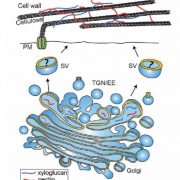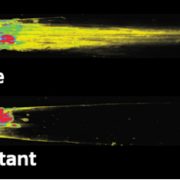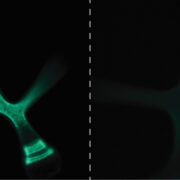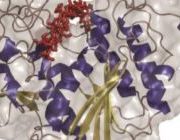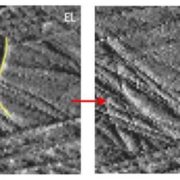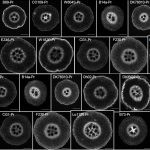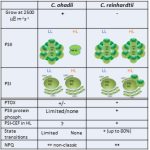Point mutations in the catalytic domain disrupt cellulose synthase vesicle trafficking and protein dynamics
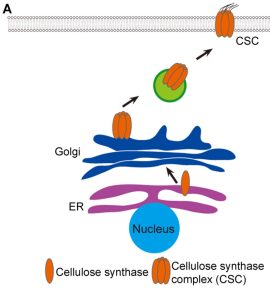 Cellulose is an important and useful biopolymer, present in plant cell walls and synthesized at the plasma membrane by protein complexes called cellulose synthase complexes (CSCs) composed of multimers of cellulose synthase (CESA). CESAs are embedded in the membrane and move along the membrane as they polymerize cellulose. In a new study, Huang et al. examined the properties of a suite of single-amino acid mutations in the catalytic domain of CESAs to determine how they impact not only the catalytic properties, but also the movement of CESAs and CSCs as the move from the endoplasmic reticulum through the Golgi, vesicles, and delivery to the plasma membrane. Their results suggest that most of these point mutations cause not only catalytic defects but also trafficking disruptions and disruptions in protein folding or complex assembly. This study sheds further light onto the structure and function of CESAs and provides information that can be used for engineering of modified CSCs. (Summary by Mary Williams @PlantTeaching) Plant Cell 10.1093/plcell/koad110
Cellulose is an important and useful biopolymer, present in plant cell walls and synthesized at the plasma membrane by protein complexes called cellulose synthase complexes (CSCs) composed of multimers of cellulose synthase (CESA). CESAs are embedded in the membrane and move along the membrane as they polymerize cellulose. In a new study, Huang et al. examined the properties of a suite of single-amino acid mutations in the catalytic domain of CESAs to determine how they impact not only the catalytic properties, but also the movement of CESAs and CSCs as the move from the endoplasmic reticulum through the Golgi, vesicles, and delivery to the plasma membrane. Their results suggest that most of these point mutations cause not only catalytic defects but also trafficking disruptions and disruptions in protein folding or complex assembly. This study sheds further light onto the structure and function of CESAs and provides information that can be used for engineering of modified CSCs. (Summary by Mary Williams @PlantTeaching) Plant Cell 10.1093/plcell/koad110


